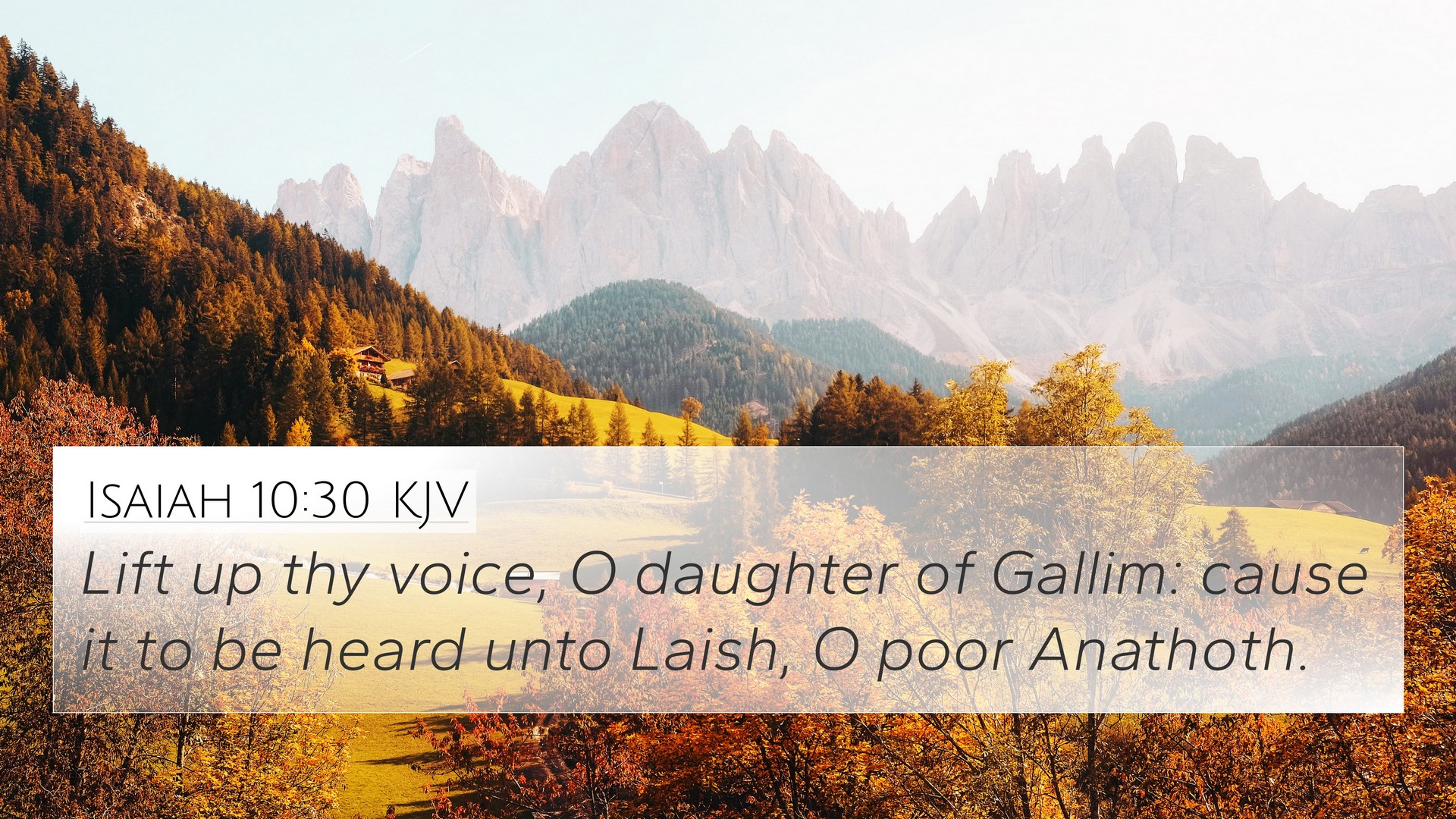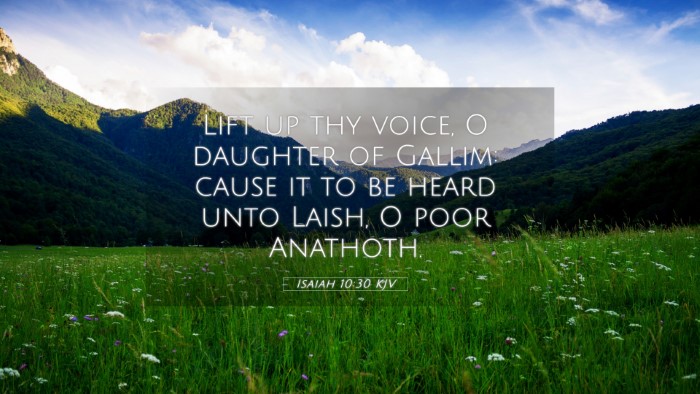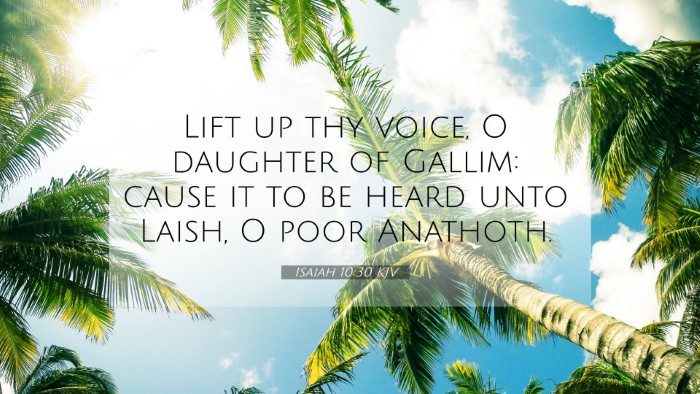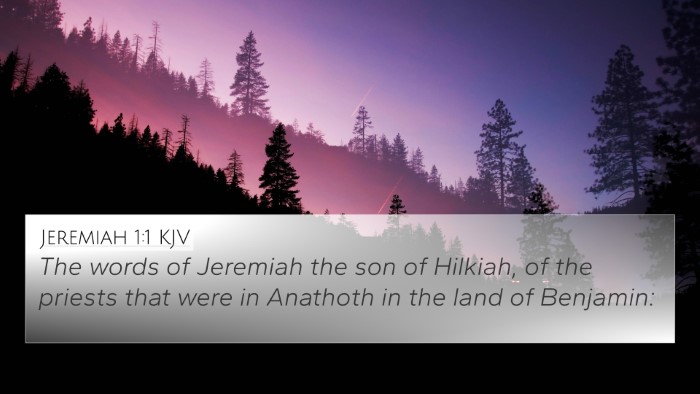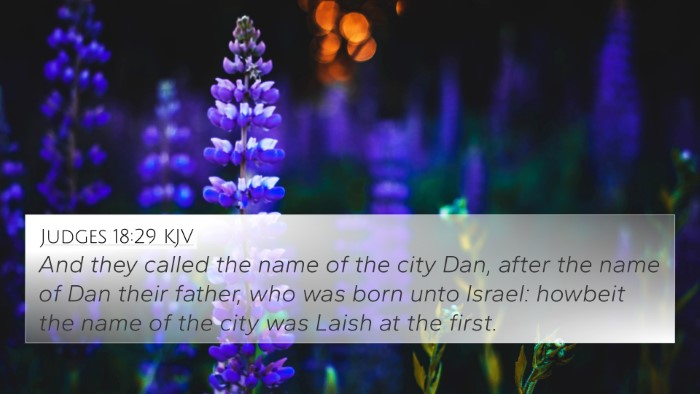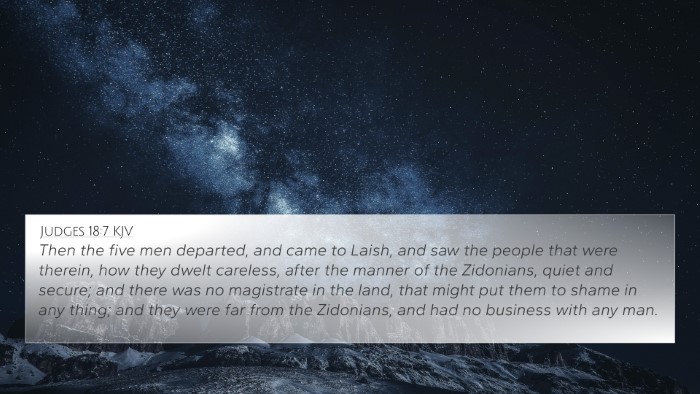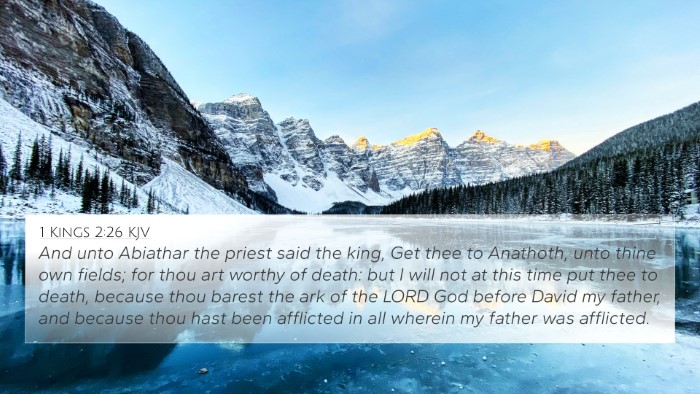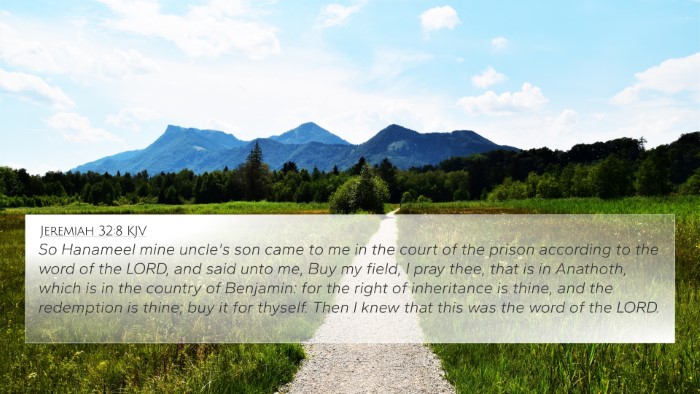Understanding Isaiah 10:30
Isaiah 10:30 states, “Lift up thy voice, O daughter of Gallim: cause it to be heard unto Laish, O poor anathoth.” This verse has a rich backdrop of prophecy concerning impending doom coming upon Ephraim and the call for a mourning that echoes throughout the regions mentioned. The commentary from Matthew Henry, Albert Barnes, and Adam Clarke provides valuable insights into the meanings and implications of this scripture.
Verse Meaning and Context
Contextual Overview:
This passage comes amid Isaiah's prophecy regarding Assyria’s might and the eventual judgment that would come upon Israel. The mention of geographical locations like Gallim and Anathoth signifies places associated with the people in distress from the impending invasion.
Matthew Henry's Commentary:
Henry emphasizes that this verse illustrates the lamentation of the people. The “daughter of Gallim” represents the inhabitants of these regions facing calamity, and their plea for mercy reflects their despair. The call to lift up their voice indicates a need for collective recognition of their dire situation.
Albert Barnes's Commentary:
Barnes interprets this verse as a prophetic voice issuing a call to attention. The locations denote areas in Judah where suffering is prevalent. He suggests that the call to “cause it to be heard” represents a need for repentance and acknowledgment of their plight. The phrase carries an urgency for the message to reach further borders, highlighting the widespread nature of suffering.
Adam Clarke's Commentary:
Clarke adds that these geographical names serve as symbols. Laish signifies a place known for violence and turmoil, while Anathoth represents a place of comfort turned into sorrow. He uses this verse to discuss the universality of woe, suggesting that the cry signifies despair that resonates beyond the localities mentioned.
Cross-References for Further Study
Cross-referencing Isaiah 10:30 with other biblical texts enhances our understanding of its themes and messages. Here are some significant parallel verses:
- Isaiah 1:15 - Describes God turning away from those who pray without sincerity, linking to the overarching theme of lamentation.
- Isaiah 30:19 - Speaks of God’s mercy during times of distress; a reminder amidst the call to repentance.
- Isaiah 28:3 - Refers to the judgment upon Ephraim, relating closely to the context of mourning in 10:30.
- Jeremiah 11:21 - Mentions Anathoth, drawing parallels to the experiences of God’s people facing hardship.
- Psalm 119:53 - The psalmist’s lamentation reflects the emotional depth found in Isaiah 10:30.
- Matthew 23:37 - Jesus laments over Jerusalem, portraying a theme of sorrow for lost opportunities.
- Zephaniah 1:10 - Similarly describes a sound of mourning, which ties into the call for awareness in our verse.
Thematic Connections and Analyses
Thematic Overview: The themes of lamentation, impending judgment, and the plea for awareness run deeply throughout scripture, particularly within the prophetic literature. Isaiah 10:30 asks the faithful to awaken to their realities:
- The existential plea for God's mercy.
- A call for collective acknowledgment of societal and spiritual failings.
- Repentance as a theme throughout biblical history.
- The role of prophetic voices in speaking truth amidst hardship.
Conclusion
Isaiah 10:30 serves as a compelling reminder of the calls for lamentation and repentance in the face of adversity. Employing insights from established commentaries clarifies the depth of the plea encapsulated in this verse, while cross-referencing with related scriptures illuminates the extensive interconnections woven throughout the Biblical narrative.
By studying verses like Isaiah 10:30 and engaging in comparative analysis, individuals can enrich their understanding of scripture and draw deeper connections between biblical texts, leading to more profound spiritual insights.
